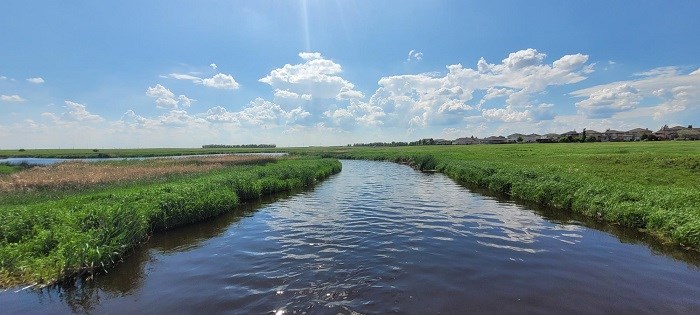The Provincial Auditor followed up on whether the Water Security Agency (WSA) implemented any of its recommendations made in the 2018 audit.
As of April of this year, the WSA has made some progress on recommendations on regulating drainage of water on agricultural lands, fully implementing four of them and partially implementing another five.
The WSA did finalize and approve "its last remaining policy related to regulating drainage of water on agricultural land", published "expected timeframes to resolve requests for assistance on unapproved drainage works", has its staff "follow established processes to escalate identified actions on unapproved drainage works within a reasonable timeframe", and does "periodically report to senior management on actions taken to address non-compliance of unapproved drainage works".
The organization still needs to "develop policies on water quality and wetland requirements to use when assessing risks of drainage works", "consistently follow established processes to document risk assessments when reviewing applications for drainage works", "require documentation of all aspects of watershed risk before approving applications for drainage works", "develop a prioritization plan to identify and bring unapproved high-risk drainage works into compliance", and "report to the public on its regulation of the drainage of water on agricultural lands."
Provincial Auditor Tara Clemett says when recommendations are made, it usually takes government agencies up to five years to address them.
"We would have been pleased and happier if we would've seen these recommendations addressed at this point," Clemett said. "We will be going for a second follow-up probably in another two to three years timeframe; I do hope...everything is finalized."
Another recommendation is for the WSA to publicly report on the number of requests for assistance, or complaints, it receives, as well as enforcement taken on unapproved drainage projects. Clemett says the WSA has benchmarks on addressing complaints in a reasonable timeframe - between six and twelve months - but would like those to be made public.
"Are you hitting the mark there? Are you actually addressing these complaints in six months? If not, why? How many complaints are outstanding? What's the reason for that? This type of information should be shared from that public perspective...so that someone can determine are they doing what they're supposed to or is change required?"
In 2015, when the Agency began working to get landowners to comply with its drainage requirements, it estimated 1.6 to 2.4 million acres of agricultural land had unapproved drainage works in the province. Fast forward to today, the Agency is working to update the amount of unapproved drainage using its wetland inventory.
A policy still under development that would address the water quality and wetland retention requirements of the report is called the Ag Water Stewardship Policy. It's mentioned in page 240 of the Auditor's report, which notes the WSA "started piloting certain aspects of the Policy with individual landowners as part of its Policy development" in March of this year. The Agency told the Auditor pilots are expected to be complete by August, "then finalize the Policy after analyzing the pilots' results.
Clemett says they will review the Policy once its finalized.
"As part of this follow-up we even utilized an expert as well and we will continue to do so, probably until this one's done because I think it's helpful to have someone who's extremely knowledgeable of the area," she said. "We would also assess it to make sure it's appropriate and in-line with good practice."
The policy has drawn concern from groups such as the Saskatchewan Alliance for Water Sustainability (SAWS). In an email, the group states the Ag Water Stewardship Policy "will promote the drainage of 2 million acres of wetlands which will inundate our lakes and rivers with excess nutrients, increase toxic algal blooms, increase droughts and floods, destroy critical wildlife habitat, damage infrastructure, and cost taxpayers billions of dollars. The Water Security Agency, the agency responsible for protecting our water and wetlands, has developed this policy and excluded requirements to mitigate impacts or restore drained wetlands."
The WSA audit is in chapter 24 of the 2024 Auditor report. The entire report can accessed by clicking here.



